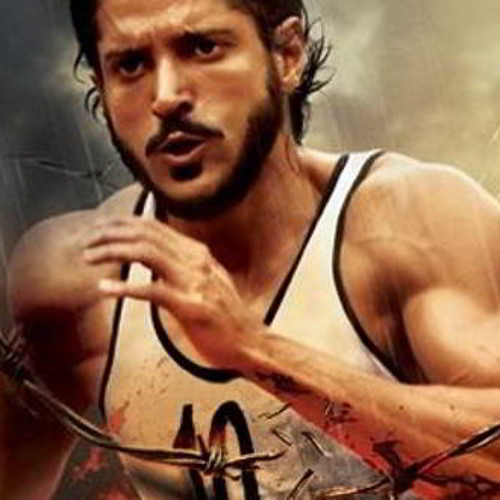

Milkha Singhji was amongst the most zinda people one could meet. “Zinda hai toh pyala poora bhar le, zindagi ka yeh ghada le, ek saans me chada le, hichkiyon mein kya hai marna, poora mar le.” He believed in not holding back and ran every race of his life as though it was the final one. I wanted to capture the spirit of how Milkhaji used to faint a number of times after his races. Whilst writing the film’s screenplay and dialogues, I’d managed to potently put across Milkhaji’s character his sheer perseverance and putting every ounce of his being into his sport and life were what I wanted to capture more of. Mushkilon se bhagna nahi hai daud lagani hai unke saath. Daudna ek decision hai, a determined endeavour. Life had thrown enough at him for anyone to run away. Life and death is not in our hands but staying optimistic is.”īhaag Milkha Bhaag encapsulated his journey. I look at Fauja Singh who at the age of 110 is still running. Without a second of hesitation, he responded, “I look at the positive side of things. Whilst meeting him in Delhi sometime in April, I happened to ask him how he felt, especially about life and death, now that he was running his 92nd year. When you do, you realise that they are not as big as they were in your mind. More importantly, as I have written in the climax, the bigger battle in life is to face your demons. Then, believe in yourself and the force above at the same time. Milkha Singh used to run so hard during his races, even during some practice ones, that he would often faint after completing them this is what you call giving your 100%. We have much to learn from Milkhaji, no matter what our pursuit is.įirst, be good at what you do – hone your craft. I had met him and dear Nirmalji just a month ago and spoke to him on the phone again recently - his voice frail but his spirit strong.

My interpretation of his life and struggles is there to see on the screen it has universally struck a chord.īut recently, what moved me was when his family mentioned that in the last days of his life, he was watching BMB repeatedly and was remembering me. That is the only way to ensure authenticity. If you aim to be authentic, you have to borrow from your life, your sensibilities, and your experiences. So the film was based on my imagination yet rooted in reality.

I decided it would be a human story and that’s the route I took, subsequently creating many incidents in the film that may not have happened in real life but could have happened. Then, one day, I stopped meeting him, stopped reading everything related to the project. We met I listened to his life story several times over and then gently took him into areas he had locked away in his memories. It’s a take on the man behind the athlete. As a writer, my approach was not to mirror but interpret his life for a film. There were documentaries, books and statistics available on Milkhaji’s sporting life. Scripting BMB was humbling I wrote, rewrote several drafts. It took me over two years to write Bhaag Milkha Bhaag (BMB)’s story, screenplay, dialogues and songs. It requires every ounce of your ability and hard work. Though his struggle was of another level and magnitude, in a tiny way I identified with the challenges of coming from a non-privileged background (a small town) and the struggle to find a footing on your own merit. When I first met Milkhaji, something resonated.


 0 kommentar(er)
0 kommentar(er)
